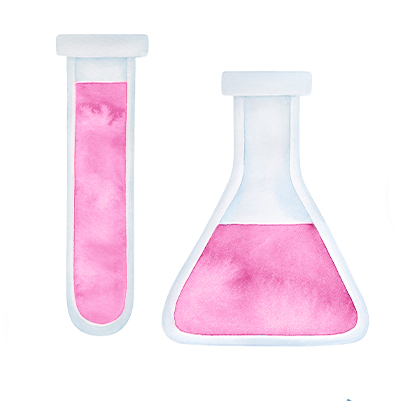If a pregnancy is determined to be high risk for a chromosomal condition, you will be referred to undertake a diagnostic test which can conclusively identify the baby’s health.
There are two diagnostic tests that are considered when a pregnancy is believed to be high risk – a Chorionic Villus Sampling (CVS) or an Amniocentesis. Which test you are referred for will depend on a few factors including how far along in the pregnancy you are.

CVS – Chorionic Villus Sampling
A CVS is usually done between eleven and thirteen weeks of pregnancy. A CVS is most commonly taken transabdominally but can be done transcervically depending on where the placenta is sitting. A hollow needle is inserted into the placenta and takes a sample of the chorionic villi. The needle is guided by an ultrasound and does not go near the baby or the amniotic sac. The biopsy of placental tissue does not hurt the baby and is sent away for testing. A local anaesthetic is given to the site before the needle enters so you should not feel any pain. There is a risk of miscarriage with a CVS of 0.22 percent¹.

Amniocentesis
An amniocentesis is similar however it is performed between 15 and 20 weeks of pregnancy. Instead of the sample being of the placenta, the medical professional will take around 20ml of amniotic fluid, which is the fluid that surrounds the baby. The amniotic fluid contains a full set of the baby’s DNA and will be able to tell accurately if there are any issues with the baby. Once again, a needle is used being guided by an ultrasound. There is a risk of miscarriage with an amniocentesis of between 0.1 and 0.3 percent².
Depending on whether a CVS or an amniocentesis is undertaken tests can show chromosomal conditions, neural tube defects, blood disorders, genetic disorders and musculoskeletal disorders.
Most results will be returned within two weeks, sometimes sooner. The tests themselves do not hurt and most women will be able to go home within an hour after the procedure. After effects are minimal but may include some mild cramping.

Receiving a Diagnosis
Diagnostic testing in pregnancy can provide the relief of a false positive or lead to parents being told the devastating news that their child has a medical condition. The conditions can range in severity from minimal impact on the child to conditions that are not compatible with life. Some conditions may have a treatment or a cure but, in some instances, there may be none.
This news is heartbreaking for all involved and will likely take time to understand and accept.
When a parent is told this news, the medical professions will advise the parents of information on the specific condition, any treatments and expected life outcomes. Depending on the circumstance, you may be referred to a specific Genetic Counsellor to discuss options and potential outcomes. They will provide you with all the information they can or place you in touch with someone who can. You will then be asked to make a decision as to how you wish to proceed – to continue with the pregnancy or to have a TFMR. You won’t have to decide straight away. You will have time to go away and speak to those you need to before making the decision.

Making a Decision
There is no right or wrong decision in this situation. Everyone’s circumstances are different, and the decision is one only you as parents can make.
When deciding about whether to continue with the pregnancy a few areas that may be considered are:
- The severity of the condition;
- The life expectancy of a child with the condition;
- The quality of life for the child;
- The treatment options for the condition;
- Your values and beliefs;
- Your financial situation;
- Your family situation;
- Assistance you may have; and
- Other children this may impact.
Women may choose to make this decision alone, with the other parent or through speaking with others depending on their situation. There is no right answer. You must decide what is best for the child and for their lives.
If you are in need of emotional support and are currently faced with this heartbreaking decision, our The Turmoil of Termination resource may help you.
1. Mayo Clinic, 2019, Chorionic Villus Sampling, https://www.mayoclinic.org/tests-procedures/chorionic-villus-sampling/about/pac-20393533
2. Mayo Clinic, 2019, Amniocentesis, https://www.mayoclinic.org/tests-procedures/amniocentesis/about/pac-20392914